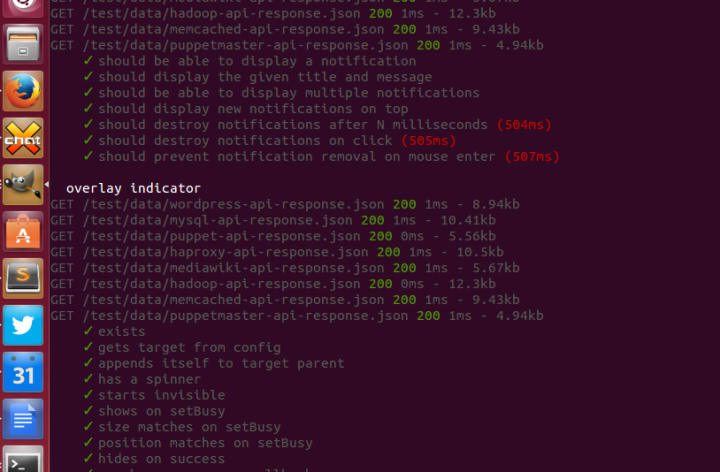Cloud sprint: what I’ve learned about testing and code reviews
Anthony Dillon
on 30 October 2013
Tags: css , Design , html , javascript , testing
I was recently asked to attend a cloud sprint in San Francisco as a front-end developer for the new Juju GUI product. I had the pleasure of finally meeting the guys that I have collaboratively worked with and ultimately been helped by on the project.
Here is a collection of things I learnt during my week overseas.
Mocha testing
Mocha is a JavaScript test framework that tests asynchronously in a browser. Previously I found it difficult to imagine a use case when developing a site, but I now know that any interactive element of a site could benefit from Mocha testing.
This is by no means a full tutorial or features set of Mocha but my findings from a week with the UI engineering team.

Breakdown small elements of your app or website its logic test
If you take a system like a user’s login and register, it is much easier to test each function of the system. For example, if the user hits the signup button you should test the registration form is then visible to the user. Then work methodically through each step of the process, testing as many different inputs you can think of.
Saving your bacon
Testing undoubtedly slows down initial development but catches a lot of mistakes and flaws in the system before anything lands in the main code base. It also means if a test fails you don’t have to manually check each test again by hand — you simply run the test suite and see the ticks roll in.
Speeds up bug squashing
Bug fixing becomes easier to the reporter and the developer. If the reporter submits a test that fails due to a bug, the developer will get the full scope of the issue and once the test passes the developer and reporter can be confident the problem no longer exists.
Linting
While I have read a lot about linting in the past but have not needed to use it on any projects I have worked on to date. So I was very happy to use and be taught the linting performed by the UI engineering team.
Enforces a standard coding syntax
I was very impressed with the level of code standards it enforces. It requires all code to be written in a certain way, from indenting and commenting to unused variables. This results in anyone using the code, being able to pick up it up and read it as if created by one person when in fact it may have contributed by many.
Code reviews
In my opinion code reviews should be performed on all front-end work to discourage sloppy code and encourage shared knowledge.
Mark up
Mark up should be very semantic. This can be a case of opinion, but shared discussion will get the team to an agreed solution, which will then be reused again by others in the similar situations.
CSS
CSS can be difficult as there are different ways to achieve a similar result, but with a code review the style used will be common practise within the team.
JavaScript
A perfect candidate as different people have different methods of coding. With a review, it will catch any sloppy or short cuts in the code. A review makes sure your code is refactored to best-practise the first time.
Conclusion
Test driven development (TDD) does slow the development process down but enforces better output from your time spend on the code and less bugs in the future.
If someone writes a failing test for your code which is expected to pass, working on the code to produce a passing test is a much easier way to demonstrate the code now works, along with all the other test for that function.
I truly believe in code reviews now. Previously I was sceptical about them. I used to think that “because my code is working” I didn’t need reviews and it would slow me down. But a good reviewer will catch things like “it works but didn’t you take a shortcut two classes ago which you meant to go back and refactor”. We all want our code to be perfect and to learn from others on a daily basis. That is what code reviews give us.
Talk to us today
Interested in running Ubuntu in your organisation?
Newsletter signup
Related posts
How we ran a sprint to refresh our design website, Part 2
Part 2 of our series on how our team created content for our design website. Get insights, tools, and lessons to help you run your own design sprint.
In pursuit of quality: UX for documentation authors
Canonical’s Platform Engineering team has been hard at work crafting documentation in Rockcraft and Charmcraft around native support for web app frameworks...
Improving our web page creation workflow: how structured content is slashing design and development time
Co-authored with Julie Muzina A year ago, during our Madrid Engineering Sprint, we challenged ourselves to dramatically reduce, or even eliminate, the need...
